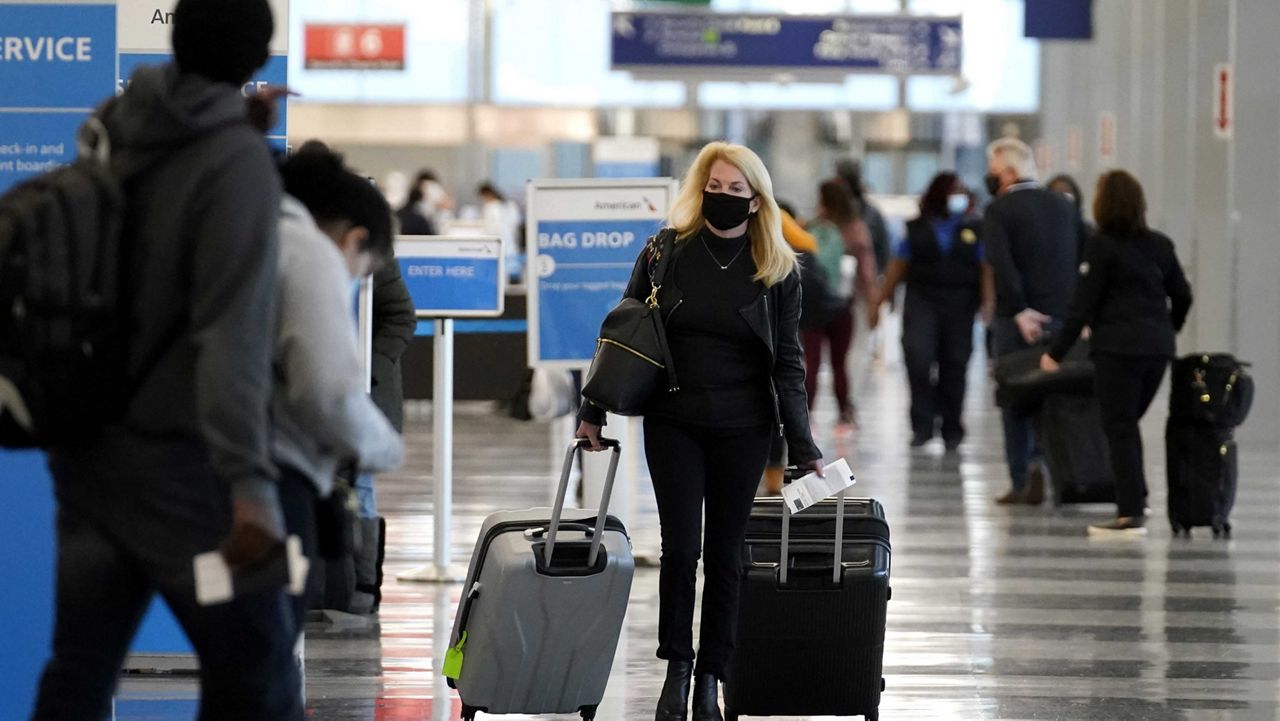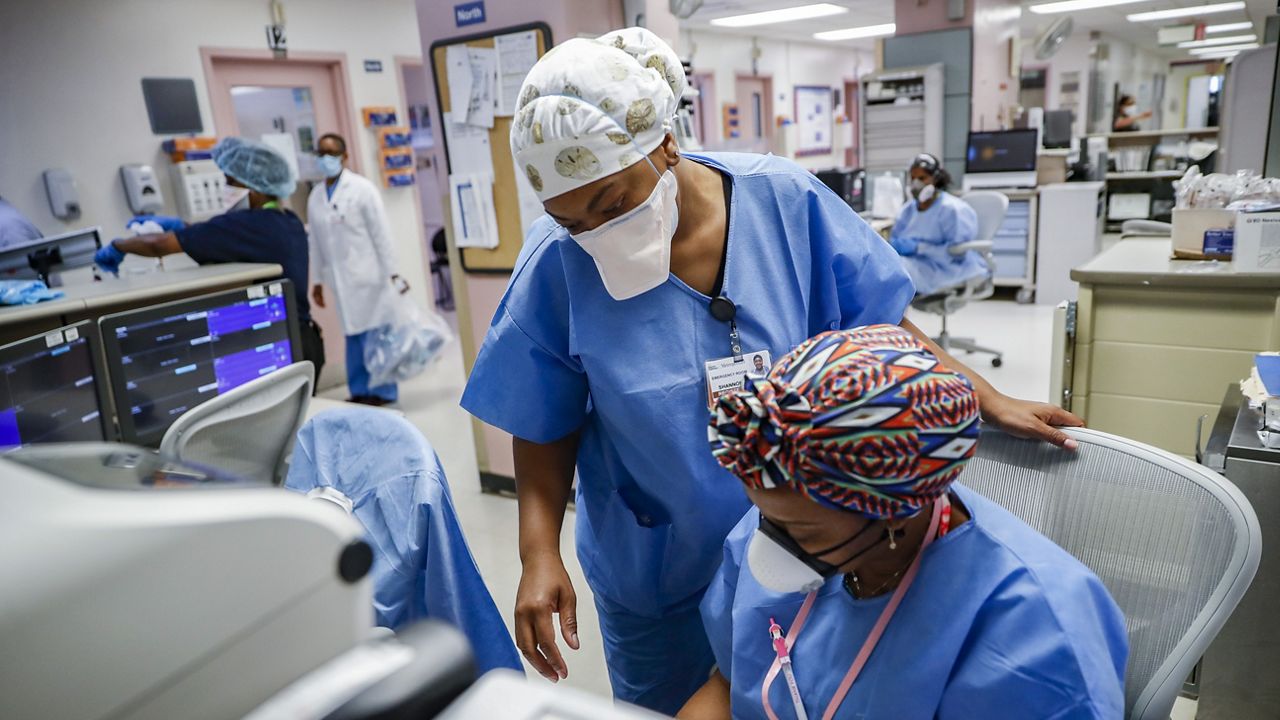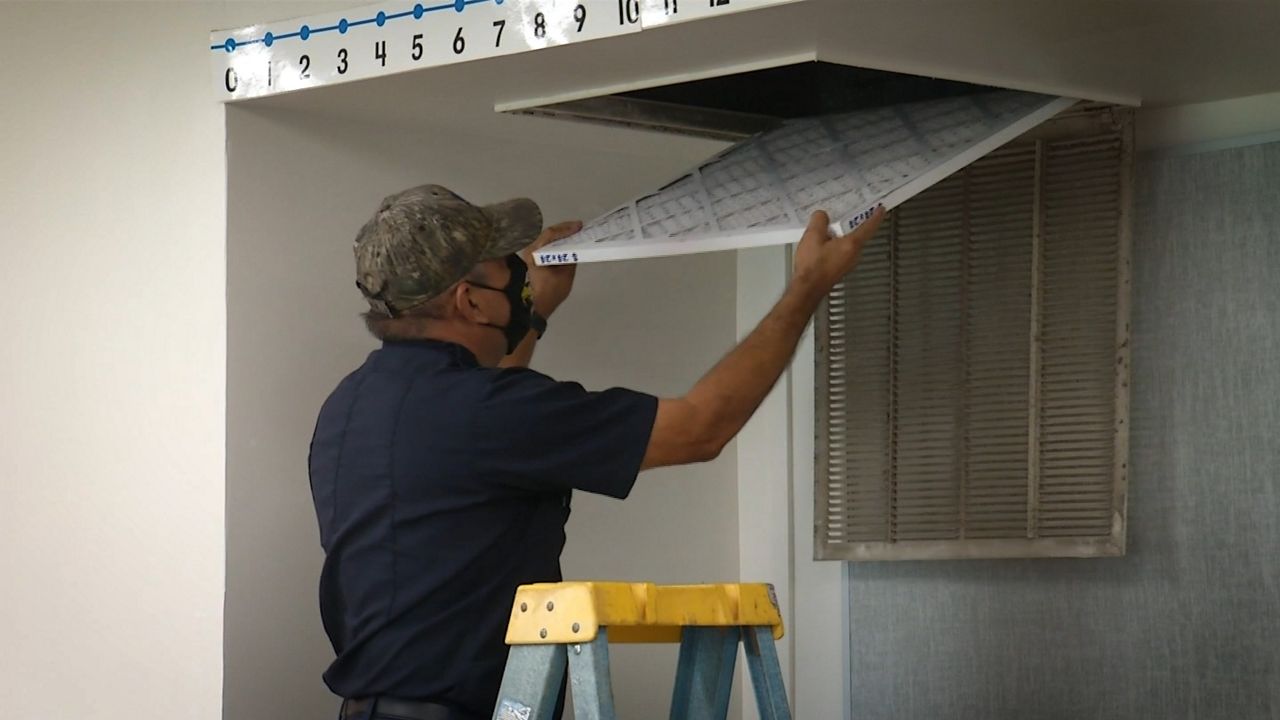With millions of Americans choosing to travel to in-person Thanksgiving celebrations, experts project that Christmas and other holiday gatherings this season will also need to be toned down, significantly.
The TSA reported that over a million people took to the skies this past Sunday, the busiest travel day since the pandemic began, not to mention the millions more who drove long distances to dine with others for the holiday.
“This is something that we have seen time and time again, that if you mix people, if you take people and move them around, you're going to introduce the virus into new households, into new communities, into new areas, and it's going to allow it to spread in those places where it previously hadn't. So what we're expecting is most likely to see a further increase in cases beginning probably sometime during the next week,” said Dr. Jeffrey Shaman, an environmental scientist and expert in infectious disease forecasting at Columbia University’s Mailman School of Public Health.
Shaman is closely monitoring the positivity rates across the country, and says he expects a rise in case counts to appear by next week.
“If it continues for a couple of weeks and then in two weeks time we start to see hospitalizations and deaths climb even higher, that puts us in a very bad place for the Christmas holidays and New Year's,” says Shaman. “If we continue just going about our business as we normally do and we don't severely restrict our activities, we're going to be really providing those opportunities for transmission of this virus and making the situation worse, potentially.”
If Americans want any hope of somewhat “normal” end of the year celebrations, experts, like Dr. Anthony Fauci, director of the National Institute of Allergy and Infectious Diseases, say there is still time to limit further spread.
Fauci urged everyone, particularly those who have traveled, to continue to wear masks, get tested, and practice social distancing – Three seemingly simple requests that have proven to save lives, especially as more and more data reveals how infectious the coronavirus is, in large part because a significant number of infected people have no symptoms or can be contagious two to three days before they start feeling sick. A recent study of Marine recruits found that 90 percent of those who tested positive were asymptomatic.
Lead researcher Dr. Stuart Sealfon says the findings highlight the need for aggressive testing and contact tracing.
“The asymptomatic levels are very high in this age group, but the levels of virus that the asymptomatic infected individuals can have are extremely high and they have to be identified so that you can decrease their ability to infect other people,” said Sealfon. “The lesson of this is not to knock temperature screening. I mean, everybody is trying to do what is best recommended. But we can't be complacent and you can't rely on them alone. I think in general we're developing a lot of complacency in areas where we've had terrific suppression of the virus and now it's starting to rebound.”
Shaman says the public needs to fight this complacency to save lives and relieve the burden on hospitals. That may mean not gathering for winter holidays, like Christmas.
“The virus is more transmissible in winter and people spend more time indoors in winter," Shaman said. "And we've had all these kids in school and kids at universities and they went home over Thanksgiving and then they're going to go home over the winter break. All those factors conspire to make it more difficult to contain the virus, more difficult than it was over the summer.”
While there is the proverbial light at the end of the tunnel, as two COVID-19 vaccine candidates are being considered for emergency use authorization, Shaman warns now is the time to hunker down more, not less.
“We're really looking at the second quarter of 2021 before people who are 20 to 50 years old, who are in good health, are going to receive the vaccine," Shaman said. "It will nibble at the margins, but it's not going to put us in that post pandemic period we'd all like to celebrate and be able to go out and greet one another without masks. And unfortunately, it's going to take some time."
"And I think people are going to need to reconcile with the fact that we are going to have to continue using all these non-pharmaceutical interventions; the masks, social distancing and the other restrictions for quite some time,” Shaman added. “Probably until summer 2021."










